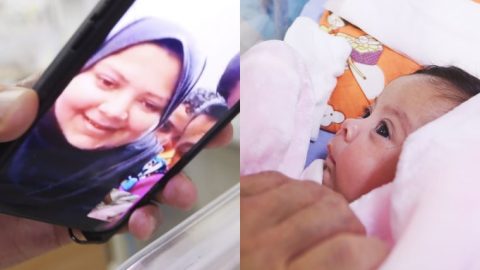HONG KONG — At first, “Fragile,” a Mandarin-language song that has gone viral in Asia, might come across as a saccharine piece of pop.
Scratch the surface of the music video, however, and it is bursting with mocking references to China, its ruling Communist Party and President Xi Jinping, prompting the authoritarian government to ban the two musicians behind it, Malaysian rapper Namewee and Australian Chinese singer Kimberley Chen.
“Please be cautious if you are fragile pink,” a message at the start of the video — which has been viewed more than 29 million times as of Friday — warns in an apparent reference to “little pinks,” a disparaging term for internet-savvy Chinese nationalists who are quick to defend their country and Xi against any perceived criticism.
The video itself is awash with the color. Balloons, furniture and the outfits Namewee and Chen wear are all pink, as are their heart-shaped glasses. A character in a panda costume that features prominently throughout the video is also dressed in pink overalls.
“I’m sorry for hurting you, hurting your feelings. I hear a sound, fragile self-esteem has broken into pieces,” the pair sing as the panda dances around.
Since its release on Oct. 15, the song has been at or near the top of YouTube music charts in places such as Hong Kong, Malaysia, Singapore and Taiwan, where Chinese is spoken. It has also been trending in Australia and New Zealand.
“The first impression that anyone gets if they’re not listening closely or looking closely is, ‘Oh, this is just a syrupy love song,’” said DJ W. Hatfield, an associate professor at the Graduate Institute of Musicology at National Taiwan University in Taipei. “But everyone knows Namewee is a wordsmith and he’s very funny, and he’s also politically pretty strident.”
So what is the song about?
Mostly without ever mentioning them directly, the song, which uses Chinese and Taiwanese internet slang, makes many topical references.
Taiwan: Lyrics about an “inseparable” relationship and “not lacking one bit” are seen by experts as references to China’s territorial disputes, including its claims on Taiwan. There is also a line about apples and pineapples, products that China stopped importing from the self-ruling island earlier this year. Namewee and Chen are both based in Taiwan.
Xinjiang: The song alludes to human rights abuses against Uyghurs and other mostly Muslim minorities in the western Chinese region of Xinjiang, as well as one of its major exports, cotton, which activists say is produced using forced labor and ends up being used by major international clothing brands. China has denied these accusations, claiming it is trying to combat extremism in the region.
Hong Kong: Some viewers see the inclusion of apples as a reference to Apple Daily, a pro-democracy newspaper in the Chinese territory of Hong Kong that was forced to shut down in June after police raided its offices, arrested senior editors and froze its financial accounts. Hong Kong saw months of protests and political upheaval in 2019 before Beijing imposed a national security law last year in an effort to crack down on dissent.
Xi Jinping: The song refers to Xi as Winnie the Pooh, a character that has been taboo in China for several years after Chinese internet users made lighthearted comparisons between him and the cartoon bear.
“Common prosperity”: This phrase used in the song is what Xi calls his drive to redistribute China’s wealth more evenly among the population.
“Every time I listen to it, I discover new things,” Hatfield said.
The song jokes about the consumption of wildlife such as bats and civets, a trope about China amplified during the coronavirus pandemic that has been widely criticized as contributing to anti-Asian racism in the United States and elsewhere. It also references China’s “Great Firewall” of strict internet controls and the censorship of sensitive terms — Namewee and Chen’s accounts on Weibo, the popular Chinese social media platform, were removed soon after the song was released.
“It’s a song about censorship,” said Jeroen de Kloet, a professor at the University of Amsterdam who studies the cultural implications of globalization with a focus on contemporary China. “But then it’s being censored, so that only amplifies the impact of the song.”
Hatfield said many of the song’s references are easily recognizable because they echo language used in Chinese government propaganda, which often accuses foreign countries, companies and individuals of “hurting the feelings” of China’s 1.4 billion people.
“The target of the song is not really Chinese people,” he said, “but a certain sector of the Chinese government, and Sinophone and non-Sinophone people who enable the Chinese Communist Party.”
Who are Namewee and Kimberley Chen?
Namewee, 38, a Malaysian national whose real name is Wee Meng Chee, is no stranger to controversy. He’s been investigated by police in the Muslim-majority country over music videos that authorities said insulted Islam, and he was almost charged with sedition over a 2007 video mocking the national anthem.
His 2015 music video satirizing K-pop was also criticized as racially insensitive. Namewee’s previous Weibo account was blocked in August after he posted “suggestions” for the new Taliban government in Afghanistan that were perceived as a jab at China.
Namewee, who is ethnically Chinese, said “Fragile” was not intended to insult China.
“A song can have double meanings or even many meanings,” he said in a Facebook post in October. “I didn’t mean to hurt anyone’s feelings, it’s just what they are willing to get from this song.”
Chen, 27, who once appeared on a girl group reality show in mainland China, grew up in the Australian city of Melbourne and became a professional singer as a teenager after moving to Taiwan.
She responded to her banishment from Chinese social media by updating the song’s lyrics.
“I’m sorry for hurting you. It doesn’t matter that my Weibo is deleted,” she sang in Mandarin in a post on Instagram and Facebook. “I hear a sound, fragile self-esteem has broken into pieces. It doesn’t matter, I still have IG and FB.”
What was the reaction in China?
Namewee’s and Chen’s Weibo accounts were blocked by Chinese censors within days of the song’s release. YouTube itself has been blocked in mainland China since 2009.
When something is deemed as “offending China,” it’s difficult to know how big the “pink army” really is, De Kloet said.
“The suggestion is very quickly that all Chinese are angry, and of course that’s not the case,” he said. “Many Chinese would also be critical of the government, many Chinese would also enjoy this song.”
Some critics on Weibo said they found the song insulting and some fans said they would stop listening to their music.
Another user lamented that Namewee’s music had been available a few days earlier “and now it’s all gone suddenly. It’s a complicated society where you need to watch what you say.”
Others made jokes about the censorship.
“Namewee’s latest song: 404,” one said.








Recent Comments